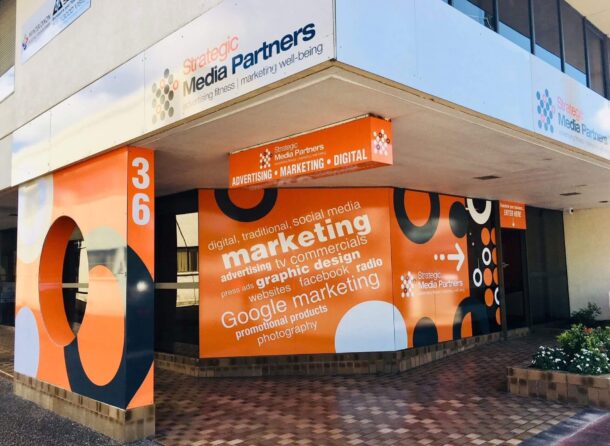Why Content Is a Fundamental Part of the Web Design Process
 Website design in Mackay require more than just aesthetics and functionality—they need strong, well-structured content. However, many web designers focus only on visual appeal, leaving content creation to the client. This often results in delays, poor-quality content, and formatting issues. Even the most visually stunning website can fail to engage users and drive conversions without compelling content.Content plays a crucial role in shaping user experience, improving search engine rankings, and effectively communicating a brand’s message. Whether you’re working on a web design Mackay project or launching a new online platform, integrating content creation from the start ensures a smoother, more effective website development process.
Website design in Mackay require more than just aesthetics and functionality—they need strong, well-structured content. However, many web designers focus only on visual appeal, leaving content creation to the client. This often results in delays, poor-quality content, and formatting issues. Even the most visually stunning website can fail to engage users and drive conversions without compelling content.Content plays a crucial role in shaping user experience, improving search engine rankings, and effectively communicating a brand’s message. Whether you’re working on a web design Mackay project or launching a new online platform, integrating content creation from the start ensures a smoother, more effective website development process.
The Relationship Between Web Design and Content
Many people believe that content and design are one and the same. However, they serve distinct yet complementary roles. Content refers to the words, images, videos, and audio that provide information, while web design focuses on presenting that content in a visually appealing and accessible way.
A well-designed website without strong content is like a beautifully wrapped gift box with nothing inside. On the other hand, excellent content presented in a poorly designed layout won’t capture user attention. The best approach is to integrate content and design from the beginning of a project.
Why Content Should Come First in Web Design
The famous architectural principle “form follows function” applies to web design as well. Before deciding on the look and feel of a website, designers must understand its purpose and functionality. A web design in Mackay project should start with a deep understanding of the business goals, target audience, and messaging.
Key Benefits of Prioritising Content in Web Design
- Improves User Experience – Well-structured content ensures visitors can quickly find the information they need.
- Enhances SEO Performance – Search engines prioritise websites with high-quality, relevant content.
- Saves Time and Effort – Designing around existing content prevents multiple revisions and redesigns.
- Increases Conversions – Compelling content guides visitors toward desired actions, such as making a purchase or booking a service.
By focusing on content first, businesses can create websites that truly serve their audience while also improving search rankings.
Challenges of Content Creation in Web Design

Despite the importance of content, many clients struggle with writing it. As a Mackay website design expert, I’ve encountered projects where clients delayed the launch simply because they couldn’t provide the necessary content.
Some common issues include:
- Clients don’t know how to structure content effectively.
- The writing lacks clarity, making it difficult for visitors to engage.
- Content arrives too late, causing delays in the design process.
- Copy is not optimised for search engines.
To avoid these pitfalls, designers and developers should incorporate content creation into their workflow rather than leaving it entirely to the client.
What to Do If Your Client Cannot Afford Professional Copywriting
Many clients hesitate to invest in professional content writing, often seeing it as an unnecessary expense. However, the benefits far outweigh the costs. Professionally written content:
- Establishes a strong brand voice.
- Saves time for both the client and the designer.
- Enhances digital marketing in Mackay by making SEO strategies more effective.
- Increases engagement and conversion rates.
If a client is reluctant to invest in copywriting, help them understand the long-term benefits. A website is an investment, and strong content can significantly improve its return on investment (ROI).
Strategies for Integrating Content into the Web Design Process
To create a website that delivers results, content and design must go hand in hand. Here are some strategies to streamline the content creation process:
1. Conduct a Content Strategy Session
Before starting the design, hold a content workshop with the client. Discuss key topics such as:
- The target audience and their needs.
- Core messages and brand values.
- The website’s primary objectives.
By aligning content with business goals early on, you can create a more cohesive Mackay website design that meets user expectations.
2. Collaborate with a Copywriter
Instead of leaving content creation to the client, partner with a professional copywriter. This ensures:
- Clear and persuasive messaging.
- SEO-friendly content that ranks well on search engines.
- A consistent brand tone across all pages.
When preparing a project proposal, include copywriting as a non-negotiable service. Position it as an essential part of the process, just like design and development.
3. Use Real Content Early in the Design Process
Avoid designing with placeholder text (Lorem Ipsum). Instead, work with actual content as soon as possible. This prevents last-minute changes that could disrupt the layout and overall site structure.
Using real content from the beginning:
- Helps designers create layouts that complement the text.
- Ensures that call-to-action (CTA) buttons align with the messaging.
- Reduces revisions and saves time.
4. Guide Clients in Writing Their Own Content
If hiring a copywriter is not an option, make it easy for clients to write content themselves by providing clear guidelines.
- Set deadlines for content submission.
- Provide a template with word count suggestions for headings, subheadings, and paragraphs.
- Offer examples of well-written web pages for reference.
By giving clients a structured approach, you can ensure that the content they provide is usable and aligned with the overall website strategy.
5. Align Content with SEO Best Practices
To maximise visibility in search engine results, content should be optimised using SEO techniques such as:
- Keyword Integration – Naturally incorporate terms like “website design Mackay” and “digital marketing Mackay” into the text.
- Meta Descriptions – Write compelling summaries for each page to improve click-through rates.
- Internal Linking – Connect relevant pages to enhance navigation and SEO performance.
- Readable Formatting – Use headings, bullet points, and short paragraphs for easy readability.
By implementing these strategies, your web design in Mackay project will be better positioned for success in both user engagement and search rankings.
Final Thoughts: Content Drives Web Design Success
Great design alone is not enough to make a website successful. Content is the heart of every website, influencing everything from user experience to SEO performance.
By prioritising content from the start and integrating it into the web design process, businesses can create websites that not only look good but also convert visitors into customers.
Whether you’re a designer, developer, or business owner, embracing a content-first approach will lead to more effective and impactful web projects.
So, the next time you start a Mackay website design project, remember: Content comes first!

